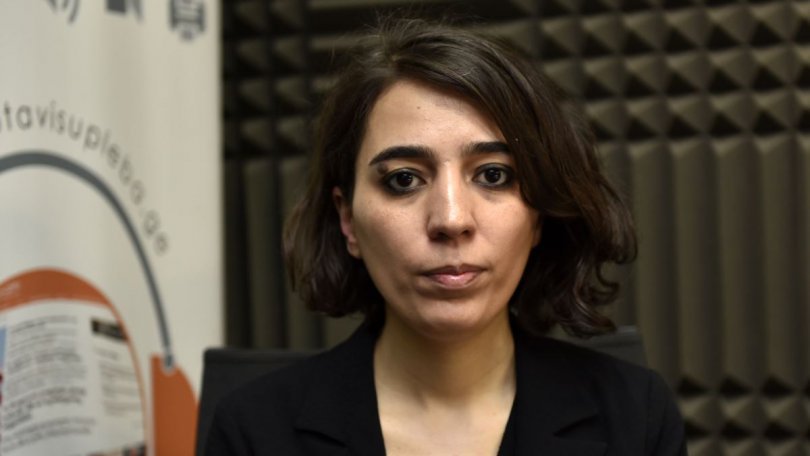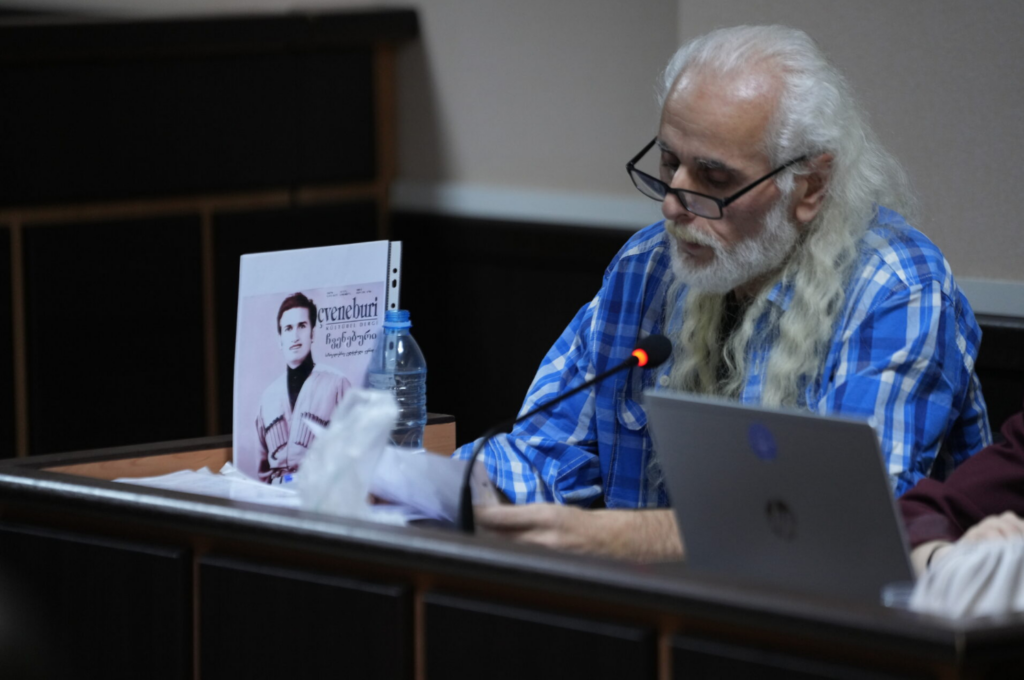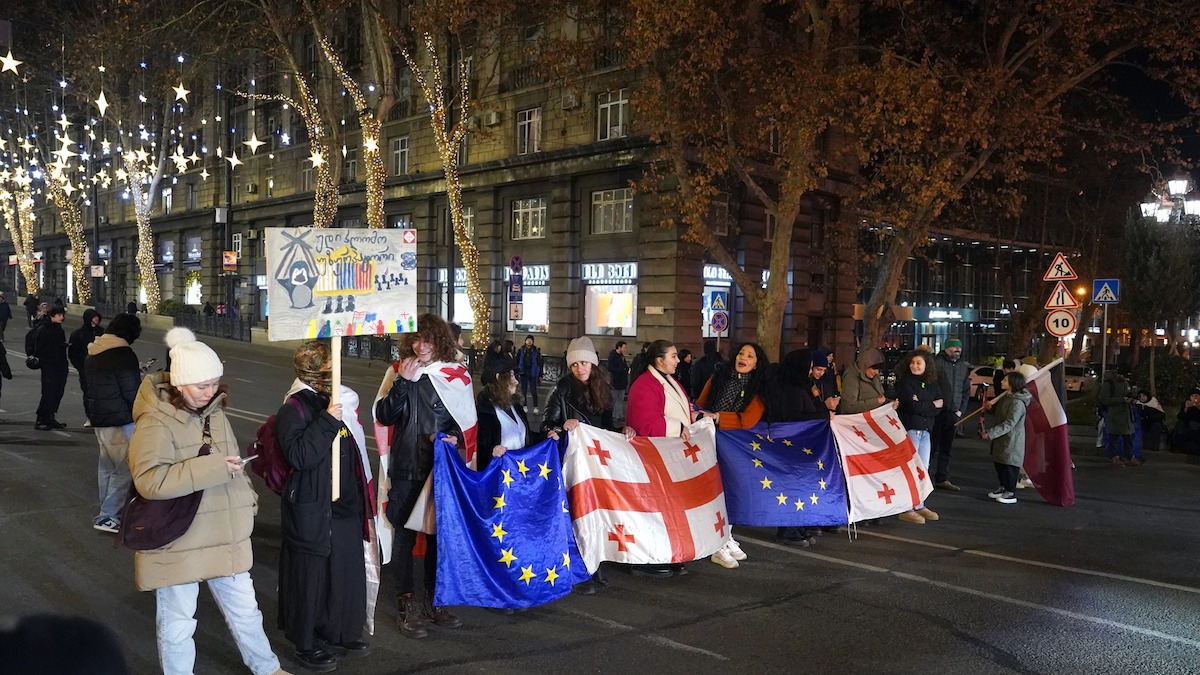“Batumi flag-bearer” Temur Katamadze deported from Georgia to Turkey
Temur Katamadze deported to Turkey
Turkish citizen Temur Katamadze (Gafar Yılmaz), previously detained during the Georgian protests and known as a symbol of the movement for regularly attending demonstrations with a flag, has been deported to Turkey. The information was confirmed by his wife, Nino Kakulia.
Katamadze was transferred to Ardahan last night. According to Kakulia, this location – far from Sarpi -was deliberately chosen, as there were reports of a planned rally in support of Katamadze near Sarpi.
She added that he will be taken to the Turkish city of Ordu, where a case has been opened against him.
According to Deputy Interior Minister Aleksandre Darakhvelidze, the deportation of Temur Katamadze was carried out “in full accordance with Georgian legislation.”
“We emphasise that his deportation was carried out in full compliance with Georgian law, based on a court ruling that has entered into legal force. This citizen’s case was reviewed by eight different court instances, and the judiciary fully upheld the position of the Interior Ministry’s Migration Department.
The defence also appealed to the European Court of Human Rights requesting interim measures, but the request was denied. Gafar Yılmaz did not take the opportunity to leave the country voluntarily, so his deportation was carried out forcibly in accordance with the requirements of Georgian legislation,” Darakhvelidze said at a briefing.

Tamta Mikeladze, head of the Social Justice Centre:
“Deputy Interior Minister Aleksandre Darakhvelidze has just held a briefing and confirmed that Georgia forcibly deported Temur Katamadze. According to the protocol, he gave his Turkish name and surname — Gafar Yılmaz.
In other words, the Interior Ministry admitted it did not hesitate for a moment and immediately expelled Katamadze from Georgia, without giving him the chance to inform either his wife or us about what was happening.
They knew perfectly well that after Strasbourg we had also appealed to the UN Human Rights Committee, yet they didn’t grant Temur Katamadze a single extra day to fully exhaust international legal mechanisms. Ruthlessness — that, to me, is the word that best describes this system.”
Who is Temur Katamadze?
Temur Katamadze (Gafar Yılmaz) is a 56-year-old descendant of muhajirs who had been fighting for refugee status in Georgia. He was previously denied Georgian citizenship three times.
Katamadze was born in Turkey in 1968 and says he is a fourth-generation muhajir. In the late 1870s, his ancestors were forcibly relocated to the Ottoman Empire from Adjara during Russian rule.
A passionate admirer of the Georgian language, history, and culture, Katamadze — often seen wearing traditional Georgian clothing — was well known in Georgia even before his arrest. He earned the nickname “the Batumi flag-bearer” for always standing at protests against the foreign agents law and the suspension of EU integration, holding the Georgian flag.
Born in Istanbul, Katamadze first travelled to Georgia in 1991, only to discover that the Georgian he had learned in Turkey differed from the modern language. Using textbooks and materials he had brought from Georgia, he worked to improve his skills.
Over the years, he embarked on a difficult journey to obtain Georgian citizenship — but all attempts were unsuccessful.

The Georgian police arrested Temur Katamadze on two occasions: the first on 11 January during a rally outside the Batumi police headquarters, and the second on 17 January, the day he was released from custody.
In a letter sent to the independent outlet Batumelebi, Katamadze, who described himself as a political prisoner, wrote that he had been physically assaulted during his arrest by police chief Irakli Dgebuadze and ten other officers.
“For 13 years of living in Georgia, I have repeatedly suffered under the Ivanishvili regime and, finally, as the ‘flag-bearer’ of the Batumi protests, I became a victim of political repression by this regime. In my view, the initial unlawful detention during the Batumi protest, followed by a second arrest aimed at deporting me, were politically motivated acts ordered by Georgian Dream — meant to punish me for years of fighting for citizenship and for my oppositional political views,” Katamadze wrote from prison.






















